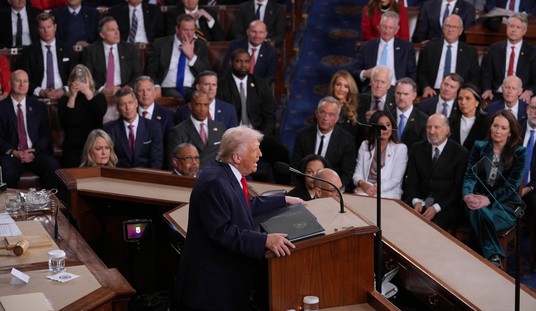Money Monster, a film that takes on both ratings-driven financial programs and corporate greed, is a populist thriller that both sides of the political aisle can appreciate. The drama, which unfolds in real time, persuasively raises questions about corruption in big business and how such corruption is sometimes swept under the rug.
The film’s protagonist isn’t a whistle-blower at the highest level of the corporate ladder. It’s a young man who lost $60,000 with a bad investment.
Last year’s ensemble drama The Big Short offered a broad view of some of the reasons why the 2008 economic collapse happened. Although Money Monster isn’t about that real crisis, its focus is on a similar topic: how corruption at the highest levels of business and governments can cause millions of dollars to disappear in moments. Unlike The Big Short, this film takes a more intimate view of the subject.
This isn’t about failed leadership at the top. It’s about the repercussions at the bottom.
Jack O’ Connell, who made such a brilliant impression in Unbroken (2014), is the frazzled star of this new film. Kyle Budwell (O’Connell) walks onto the set of a silly financial advice program hosted by the self-involved Lee Gates (George Clooney). On his show — entitled Money Monster — Gates dances and shouts and plays up to the camera. He’s a showman first and an adviser second, a distinction that viewers like Budwell didn't fully appreciate.
Budwell holds him and the show’s employees hostage because he got into Gates' clown car, not realizing that it was all for show. Julia Roberts co-stars as Patty Fenn, Gates’ long-time director who realizes that Budwell might have a point. Budwell followed Gates’ advice and purchased stocks for a company called Ibis Clear Capital, a company run by the cocky CEO Walt Camby (Dominic West), so Fenn begins looking into that company’s financial practices as the hostage situation unfolds.
Recommended
Director Jodie Foster, working off a screenplay by Jamie Linden, Alan DiFiore, and Jim Kouf, is tasked with a tough job here in balancing the on-camera hostage situation with the drama unfolding at Ibis and within the police department (who are tasked with solving the crisis). Her greatest success lies in the studio scenes as Budwell faces the dangerous consequences of his actions, Gates is forced to reckon with his own antics and Fenn is forced to start asking questions about her show's content.
“We don’t do gotcha journalism here. We don’t do journalism period,” she says but that's before she's forced to start thinking for herself.
The screenplay struggles though with its secondary story-lines, which often weigh this story down. The most absurd of those is an inane secondary story about Ron (Christopher Denham), the show’s inept producer who is trying out a new sexual arousal drug while the hostage situation unfolds. It’s hard to understand what the screenwriters were intending there — is this film supposed to be a goofy comedy? — but that plot flails. Additionally, the ongoing story-line about what the police plan to do to stop the hostage situation is so strange that it’s hard to understand what their goals actually are. They are given ample opportunities to end the situation but never take advantage of them.
That being said, Foster has crafted a strong thriller here (with a few really neat surprises including a twist about Budwell's girlfriend) but the movie also tackles larger subjects in a compelling way. At the end, the Oscar-winning director points a camera at the audience itself, asking us as viewers to start asking questions both about the media and about corruption. Hers is a noble cause that comes to life in this well-crafted thriller.
Click here for more must-read reviews of the new film.
























Join the conversation as a VIP Member